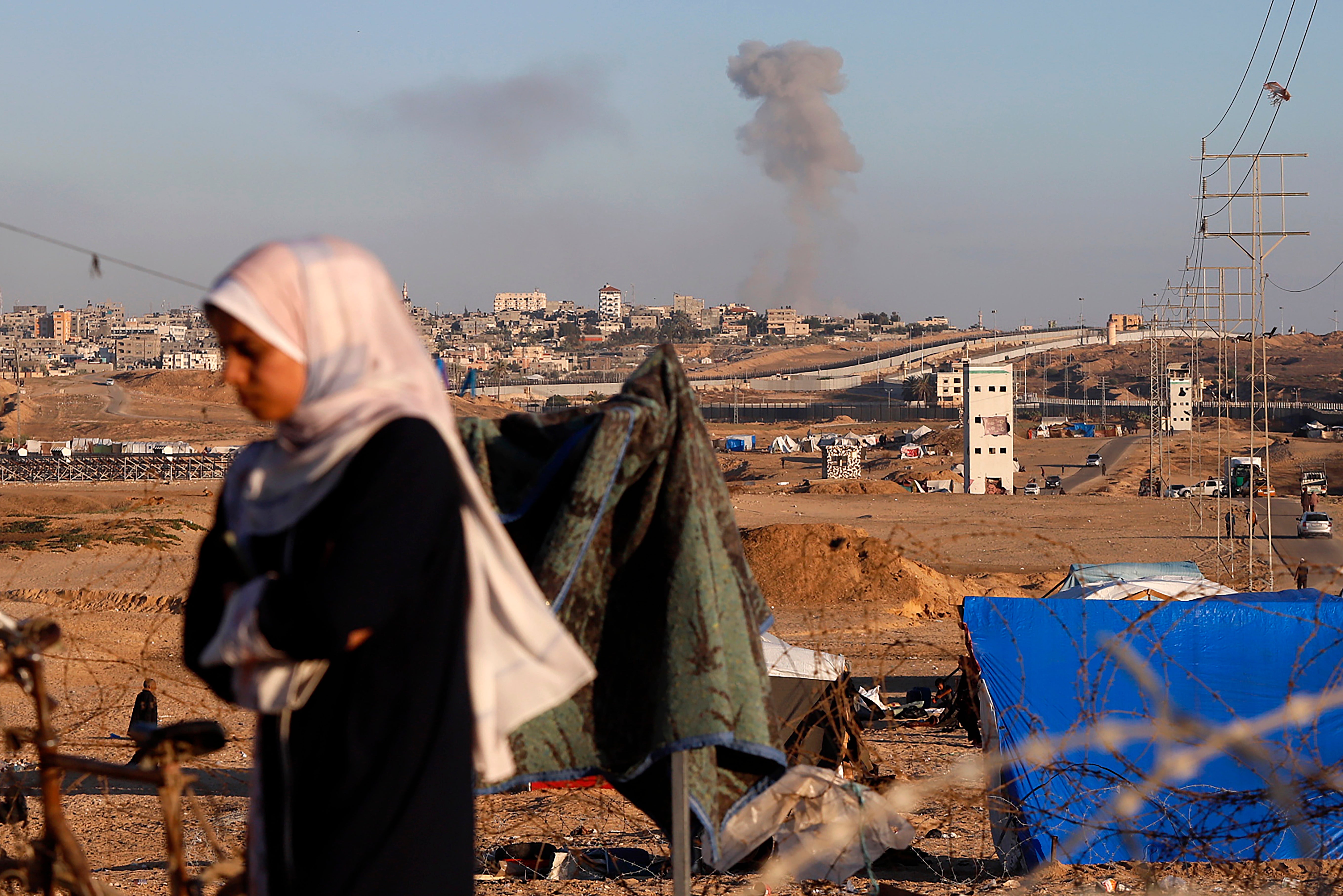If Rafah is attacked, Israel will have nothing to show for its unwinnable war
Editorial: A full-scale assault of the southern Gaza Strip puts more than a million lives in the firing line – and brings the Israeli hostages no closer to home. There is only one way solution, Mr Netanyahu: accept a ceasefire

It is said that Benjamin Netanyahu is in something of a dilemma regarding his planned attack on Rafah. On the one side is the intense pressure on him exerted by President Biden; Israel’s remaining friends and potential allies in the region; the EU and the UK; the rest of the international community; the judges at the International Court of Justice; the Pope; much of Israeli public opinion desperate for a hostage deal; and, for what it is worth to him, the Palestinian people who happen to co-habit that part of the Middle East.
This global coalition, without exception, is begging the Israeli government not to go ahead, with the inevitable loss of life among civilians, including children, and ever-deepening humanitarian crisis. That, according to the aid agencies, includes the spread of disease and a man-made famine. As ever, there lurks the possibility of renewed direct confrontation with Iran, not to mention Hezbollah, Houthi rebels and other members of the “axis of resistance”.
On the other side, we find Mr Netanyahu’s hardline Israeli nationalist political allies, their supporters, a minority in the country, and the prime minister’s short-term political future.
It is his own awkward political partners who can summarily remove Mr Netanyahu from office; not even the United States can do that. The abandonment of his coalition allies is a risk to his career that Mr Netanyahu cannot take.
His working assumption, and best chance of survival, he thinks, is to flatten the remainder of Gaza, claim that Hamas has been defeated (which no terrorist group really can be), declare victory and appeal to the Israeli electorate for support.
At the moment, with the hostages still firmly in Hamas’s hands, he is too unpopular for even he, the great survivor, to avoid political disaster. He needs a nominal victory, no matter how pyrrhic.
An angry Joe Biden could scale back US financial and military support, but that wouldn’t make much immediate difference on the ground; and, as Mr Biden himself acknowledges, when push comes to shove, the US will always have Israel’s back. Abandonment of such an ally is not an option. Mr Netanyahu knows that, and ruthlessly abuses US faithfulness. What role, if any, Mr Netanyahu’s conscience plays in such calculations cannot be speculated.
And so Mr Netanyahu presses on. He has reacted cooly to the latest Egyptian ceasefire proposal, accepted by Hamas, which would see the return of hostages and open up the possibility of a more sustained peace – but would not necessarily give him the opportunity to “win” his war. His aims and intentions have long been clear, albeit somewhat postponed during the period of Ramadan.
Israeli tanks are already in situ at the Rafah border, with all that entails, symbolically and practically. Aid will now find it even more difficult to get through – and refugees have an even greater struggle to get out. Predictably, the Israeli Defence Forces have advised (ie, ordered) civilians to relocate yet again, either to a stretch of land on the coast, or to the already destroyed town of Khan Younis. Well over a million people are in the firing line of a renewed Israeli air bombardment and land assault with heavy armour.
Thus there is a depressing sense of inevitability about events, even though a ceasefire could prove a turning point – and not just in this war, but in the quest for peace to which all parties must one day return. Eventually, the fighting will end and the demolition of Gaza will stop, if only because there is nothing left to destroy.
At that point, we may be reliably sure of three things. First, there is no guarantee that Hamas, or some similar group, will not launch another terrorist atrocity like the one on 7 October. Second, we know that relations between Israel and powerful neighbours such as Turkey and Saudi Arabia, the necessary context for regional stability, will remain difficult.
Third, and most pertinent to Mr Netanyahu, more innocent hostages (a variety of nationalities) will lose their lives, including from aerial bombings by the IDF. Almost entirely counterproductive, Mr Netanyahu will have little to show for the way he has conducted this unwinnable war.



Join our commenting forum
Join thought-provoking conversations, follow other Independent readers and see their replies
Comments